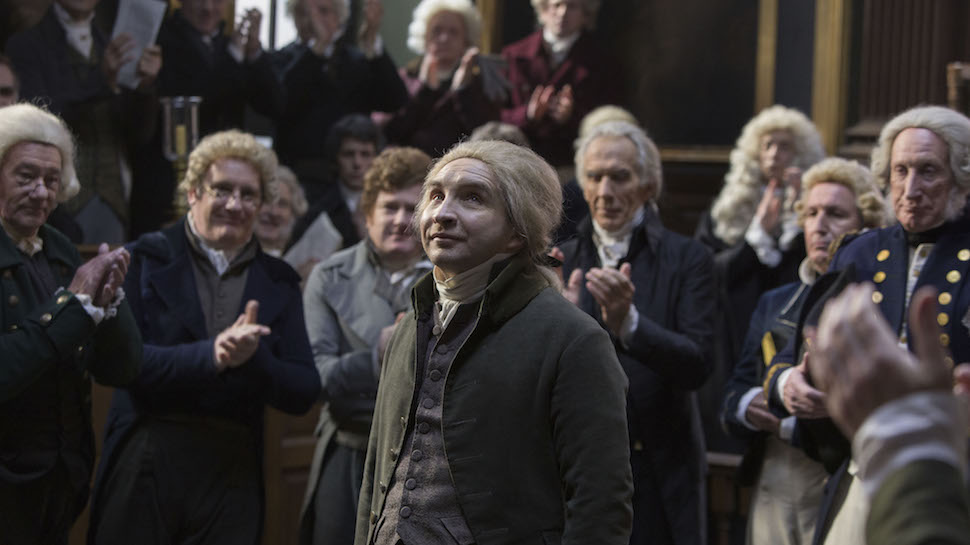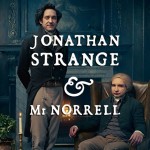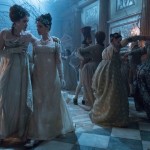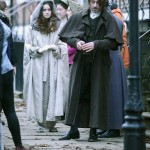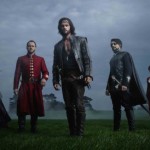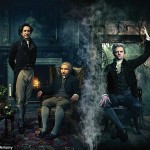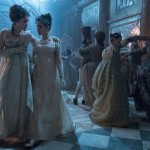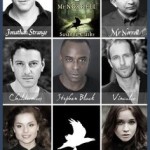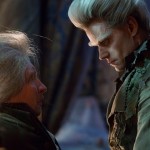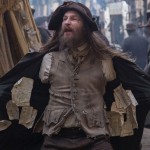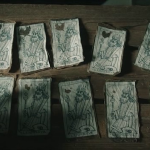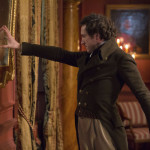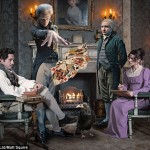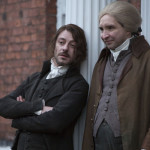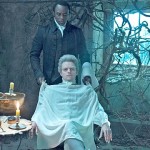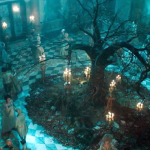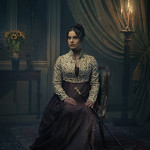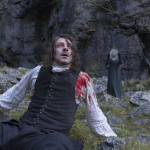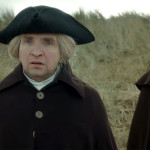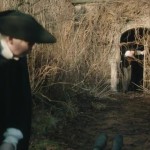Magic is a source of endless fascination, by which I refer both to the art of illusion and the fictional variety of fantasy magic, defined on Wikipedia thus:
“Magic, or sorcery, is the use of rituals, symbols, actions, gestures and language that are believed to exploit supernatural forces”
The former is well served in the reality of illusionists, some of whom endeavour to carry on the tradition of the great illusionists, articulated so beautifully in Jim Steinmeyer‘s superlative book about the competition to find the perfect illusion, Hiding the Elephant: How Magicians Invented the Impossible. In fiction I loved Glen David Gold‘s novel Carter Beats The Devil, which must surely one day be filmed and may even be in production now for all I know. The Prestige and The Illusionist, both beguiling movies, explored the blurred lines between illusion and something deeper, even if Now You See Me… frankly cheated the audience.
So it was with some curiosity I bought the Blu-ray edition of the BBC’s adaptation of Susanna Clarke‘s debut bestseller Jonathan Strange and Mr Norrell, a novel I bought and read avidly a few years ago. The joy of the book is that it is both a highly fictionalised historical yarn and a magical fantasy, interwoven with breathtaking skill and clarity, one which creates resonant characters and provides, in the best fictional traditions. And as yarns go, it’s a rattling good one!
The setting being 1806, Clarke breathes life into Wellington‘s Peninsular campaign against the Spanish, incorporates such notable characters as the “mad” King George III and Lord Liverpool by bringing a world of magic to their deliberations – and a remarkably satisfying denouement in the quest of the eponymous Strange and Norrell to restore English magic to the point of respectability – even though this takes them deep into the territory of deep dark old magic, far beyond the world of earthly illusion.
First thing to say is that director Toby Haynes has created a piece of ravishing beauty – in the Blu-ray edition at least, demonstrating all the virtues of hi-def TV, not something you could say about every Blu-ray. The colour is rich and detail glorious, helped by superlative lighting. CGI and special effects are used not sparingly but always to good purpose and in-keeping with the plot – and as one critic put it they are exquisitely done.
Sets and locations (and there are an enormous number of them, covering battles on land and sea, the world of Lost Hope and London society) evoke scenes in the book splendidly, including those which venture beyond the normal everyday world and into the Raven King‘s roads beyond the mirrors of England. Truth be told, it is hard to imagine the breadth, scope and sheer magical finesse exploding on the screen to any greater effect.
But none of this would be of any consequence, much less compelling drama, without a rollicking good script. Writer Peter Harness says that he wants to capture the spirit of the book. Adapting this work could not have been an easy job for Harness, but for the most part it succeeds admirably, albeit with a number of significant deviations to the plot. Given the complexity of the narrative and multiple inter-linked story lines, he fact that at times he plays fast and loose was perhaps inevitable. Most of the changes keep the overall coherence across 7 hours of televising, though a number of very neat diversions were lost in translation (my own favourite was the end of the devious and manipulative Lascelles, who in the book was hoist very firmly by his own petard. In the adaptation he finds himself.) The weakest aspect is possibly the ending, which slightly fizzles out, though it would be unfair to dismiss a fine piece of work on those grounds alone.
But it is first rate characterisation that made the book and makes the miniseries. Here the casting team have come up trumps, starting with the spine of the narrative: I’ve long thought Eddie Marsan a truly excellent actor, the kind who is not conventionally “leading man” handsome but gets the job done while conveying hidden depths to every character he portrays, something he has done in a surprising number of box office hits. Marsan was born to play Mr Norrell/Norr-ell by virtue of the fact that the character is an iceberg – 90% below the surface, but fairly crotchety within the remaining 10%, and pulls off the diverse moods and inner rumblings to a tee.
Where Norrell is at one end of the magical continuum, being essentially a private man who has learned magic from books and wishes to protect and hide from older, darker magic, Jonathan Strange is at the other – he is the natural talent, the instinctive magician without the skill or training. As co-conspirator Strange, Bertie Carvel is not a name known to me, though he acquits Strange with a dashing edge and inner courage, though no less inner turmoil than Norrell as the two pit wits as master and pupil, later rivals and emerge as collaborators in the face of the common enemy whose manifestation was unwittingly conjured by Norrell and quickly outwitted both.
Said person, referred to as “the Gentleman with the Thistle-down Hair” and also as a “Faerie guide” is played by a familiar face in the form of Marc Warren, an actor I remember being on the receiving end of punishment in the brilliant original version of State of Play. This role is a total contrast to the cockney geezers he usually plays, yet Warren grabs it by the throat and makes it his – a definitive performance if ever I saw one. Strange has his period of madness, acquired deliberately, all the better to be able to see his faerie adversary, which Carvel pulls off with nonchalance. The air crackles when the two are face-to-face – the kind of drama for which you gladly pay your BBC licence fee.
In fact, you would be struggling to criticise any of an ensemble cast, all of whom are as appropriate for their roles as the leading players. Particular credit to Alice Englert, who has to cope with all shades of apparent madness and magic, not to mention being brought back from the dead, a feat that has foxed many an actor over the years – and Ariyon Bakare for the equally compromised Stephen Black, having travelled from son of a slave via being butler to a rich lord and master, to the throes of nobility in the faerie world. Praise too for Enzo Cilenti as Norrell’s manservant Childermass, who imbues his character with the dark cynicism and darker threats.
If this is a flawed series, it is nonetheless thoroughly enjoyable, engaging throughout, visually spectacular and acted with verve and passion. If you have not seen it, I still think the book conjures in greater sophistication the world of English magic 300 years on from the mythical Raven King, but Clarke herself burst into tears on first seeing her characters brought to life – and you don’t get any better recommendation than that.

